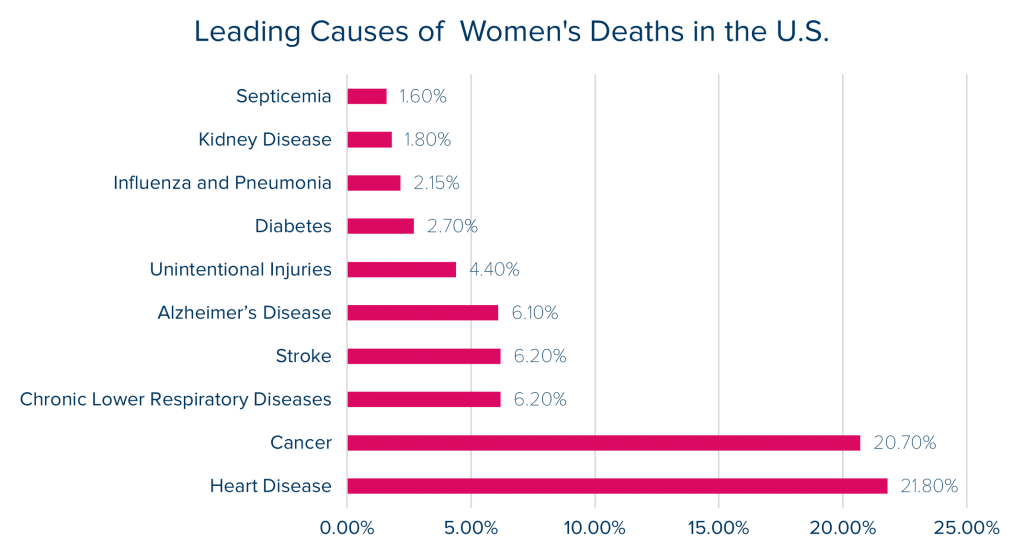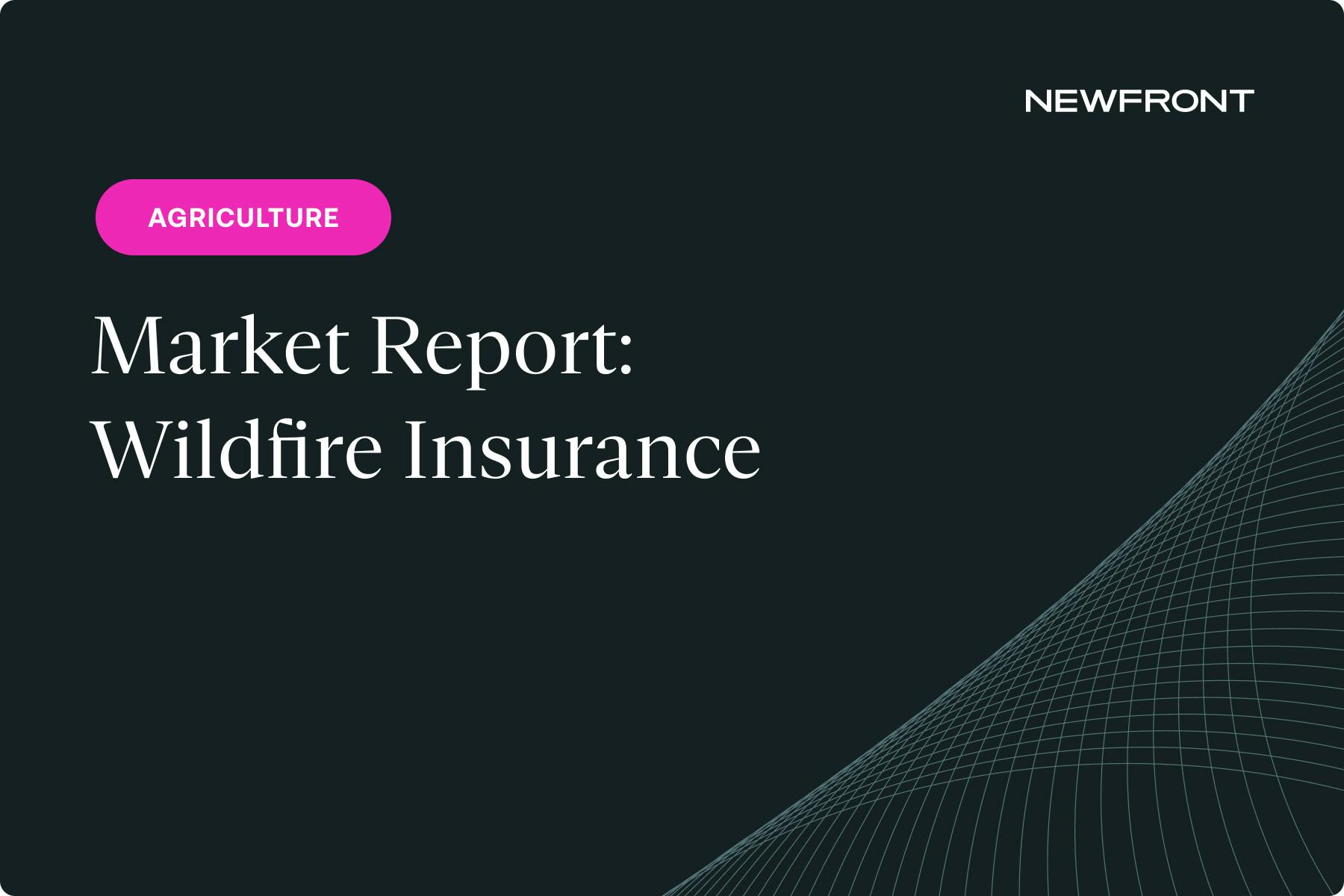Well Beyond Work: Newfront Observes National Women's Health Week: May 9-15, 2021
By Robin Hendrickson | Published May 7, 2021

Did you know National Women’s Health Week starts on Mother’s Day every year? Why is this so important? Let’s take a look at some troubling facts on the state of women’s health.
Centers for Disease Control and Prevention (CDC) lists the leading causes of death amongst women in the United States, of all races, origins, and ages:
A few more facts from CDC on Women’s Health in the U.S.:
15.6% of women aged 18 and over in fair or poor health.
12.7% of women aged 18 and over who currently smoke cigarettes.
41.8% of women aged 20 and over who are obese (2015-2018).
45.2% of women aged 20 and over with hypertension (measured high blood pressure and/or taking antihypertensive medication, 2015-2018).
This year, National Women’s Health Week is celebrated May 9-15. This campaign serves as a reminder for women of all ages to invest the time to focus on their overall physical and mental state of wellbeing.
CDC and the American Heart Association websites provide several ideas and online tools to help women stay healthy, including the importance of physical activity, managing any underlying health conditions (e.g., hypertension, obesity, diabetes), weight control, good nutrition, recognizing and managing stress and anxiety, and avoiding chronic diseases caused by unhealthy behaviors (e.g., smoking, alcohol abuse, insufficient sleep, etc.). For our Occupational Health & Safety team’s top tips for wellness, see the other installments in our Well Beyond Work series.
Let us take this opportunity to remind the women in our lives how important they are by sending words of encouragement to take time for their physical and mental health and wellbeing.
Information and Resources from Centers for Disease Prevention and Control and American Heart Association

Robin Hendrickson
As Newfront’s Occupational Health & Safety practice leader, Robin leads a team of experienced workers’ compensation claims management, wellness initiative, and loss mitigation and strategy consultants. Robin, and her team, work with employers to reduce occupational risk exposures, implementing best practices to control claim costs, and keeping employees safe, healthy, and productive.



